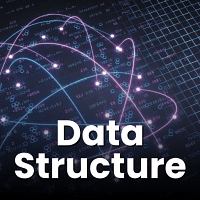Computer Science Engineering (CSE) Exam > Computer Science Engineering (CSE) Questions > What are the discrete mathematics topics cove...
Start Learning for Free
What are the discrete mathematics topics covered in the GATE CSE syllabus?
Most Upvoted Answer
What are the discrete mathematics topics covered in the GATE CSE sylla...
- Discrete Mathematics Topics in GATE CSE Syllabus
Discrete mathematics plays a crucial role in the GATE Computer Science Engineering (CSE) syllabus. It covers various important topics that are essential for understanding computer science concepts and problem-solving skills.
- Set Theory:
Set theory is a fundamental concept in discrete mathematics. Topics covered include sets, subsets, operations on sets, Venn diagrams, and set properties.
- Relations and Functions:
This topic covers relations, types of relations like reflexive, symmetric, transitive, equivalence relations, functions, types of functions like injective, surjective, bijective functions.
- Combinatorics:
Combinatorics deals with counting, permutations, combinations, binomial theorem, principle of inclusion and exclusion, and pigeonhole principle.
- Graph Theory:
Graph theory covers basics of graphs, types of graphs, graph representations, graph traversal algorithms like DFS and BFS, shortest path algorithms, and spanning trees.
- Propositional and First Order Logic:
This topic covers propositional logic, propositional equivalences, predicate logic, quantifiers, and logical inference.
- Probability:
Probability topics include probability of events, conditional probability, Bayes theorem, random variables, probability distributions like uniform, binomial, and normal distributions.
- Linear Algebra:
Basic concepts of linear algebra like matrices, determinants, rank of a matrix, system of linear equations, eigenvalues, and eigenvectors are also part of the GATE CSE syllabus.
Mastering these discrete mathematics topics is essential for GATE CSE aspirants to score well in the exam and have a strong foundation in computer science concepts.
Discrete mathematics plays a crucial role in the GATE Computer Science Engineering (CSE) syllabus. It covers various important topics that are essential for understanding computer science concepts and problem-solving skills.
- Set Theory:
Set theory is a fundamental concept in discrete mathematics. Topics covered include sets, subsets, operations on sets, Venn diagrams, and set properties.
- Relations and Functions:
This topic covers relations, types of relations like reflexive, symmetric, transitive, equivalence relations, functions, types of functions like injective, surjective, bijective functions.
- Combinatorics:
Combinatorics deals with counting, permutations, combinations, binomial theorem, principle of inclusion and exclusion, and pigeonhole principle.
- Graph Theory:
Graph theory covers basics of graphs, types of graphs, graph representations, graph traversal algorithms like DFS and BFS, shortest path algorithms, and spanning trees.
- Propositional and First Order Logic:
This topic covers propositional logic, propositional equivalences, predicate logic, quantifiers, and logical inference.
- Probability:
Probability topics include probability of events, conditional probability, Bayes theorem, random variables, probability distributions like uniform, binomial, and normal distributions.
- Linear Algebra:
Basic concepts of linear algebra like matrices, determinants, rank of a matrix, system of linear equations, eigenvalues, and eigenvectors are also part of the GATE CSE syllabus.
Mastering these discrete mathematics topics is essential for GATE CSE aspirants to score well in the exam and have a strong foundation in computer science concepts.
Attention Computer Science Engineering (CSE) Students!
To make sure you are not studying endlessly, EduRev has designed Computer Science Engineering (CSE) study material, with Structured Courses, Videos, & Test Series. Plus get personalized analysis, doubt solving and improvement plans to achieve a great score in Computer Science Engineering (CSE).

|
Explore Courses for Computer Science Engineering (CSE) exam
|

|
Similar Computer Science Engineering (CSE) Doubts
What are the discrete mathematics topics covered in the GATE CSE syllabus?
Question Description
What are the discrete mathematics topics covered in the GATE CSE syllabus? for Computer Science Engineering (CSE) 2024 is part of Computer Science Engineering (CSE) preparation. The Question and answers have been prepared according to the Computer Science Engineering (CSE) exam syllabus. Information about What are the discrete mathematics topics covered in the GATE CSE syllabus? covers all topics & solutions for Computer Science Engineering (CSE) 2024 Exam. Find important definitions, questions, meanings, examples, exercises and tests below for What are the discrete mathematics topics covered in the GATE CSE syllabus?.
What are the discrete mathematics topics covered in the GATE CSE syllabus? for Computer Science Engineering (CSE) 2024 is part of Computer Science Engineering (CSE) preparation. The Question and answers have been prepared according to the Computer Science Engineering (CSE) exam syllabus. Information about What are the discrete mathematics topics covered in the GATE CSE syllabus? covers all topics & solutions for Computer Science Engineering (CSE) 2024 Exam. Find important definitions, questions, meanings, examples, exercises and tests below for What are the discrete mathematics topics covered in the GATE CSE syllabus?.
Solutions for What are the discrete mathematics topics covered in the GATE CSE syllabus? in English & in Hindi are available as part of our courses for Computer Science Engineering (CSE).
Download more important topics, notes, lectures and mock test series for Computer Science Engineering (CSE) Exam by signing up for free.
Here you can find the meaning of What are the discrete mathematics topics covered in the GATE CSE syllabus? defined & explained in the simplest way possible. Besides giving the explanation of
What are the discrete mathematics topics covered in the GATE CSE syllabus?, a detailed solution for What are the discrete mathematics topics covered in the GATE CSE syllabus? has been provided alongside types of What are the discrete mathematics topics covered in the GATE CSE syllabus? theory, EduRev gives you an
ample number of questions to practice What are the discrete mathematics topics covered in the GATE CSE syllabus? tests, examples and also practice Computer Science Engineering (CSE) tests.

|
Explore Courses for Computer Science Engineering (CSE) exam
|

|
Suggested Free Tests
Signup for Free!
Signup to see your scores go up within 7 days! Learn & Practice with 1000+ FREE Notes, Videos & Tests.

























